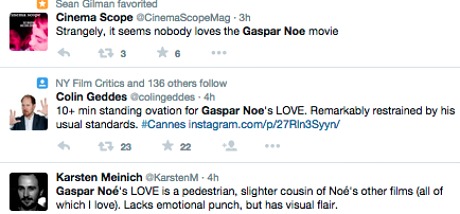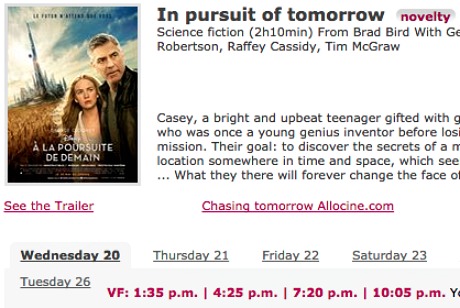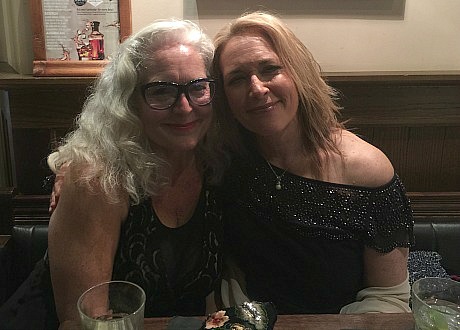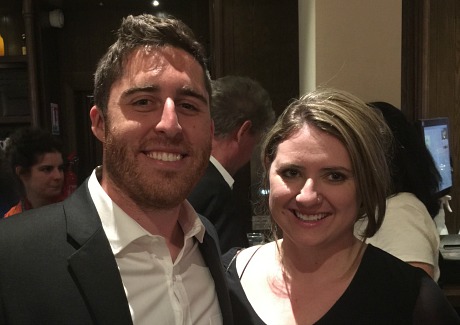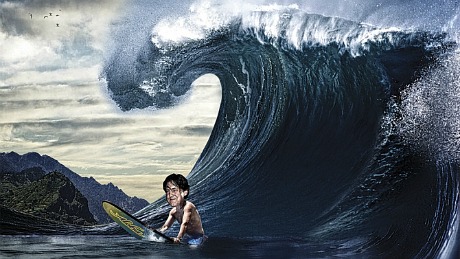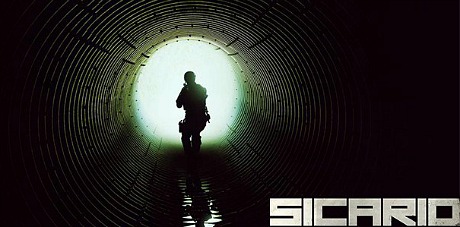I complained about this last year and I’m complaining again — the sound in the Grand Theatre Lumiere is too bassy and echo-y, and so I struggled to hear the dialogue during this morning’s screening of Denis Villeneuve‘s Sicario (Lionsgate, 9.18). I managed to pick up a stray word or phrase here and there, and when all else failed I relied on nouns and verbs contained in the French subtitles. Listen and read and combine, listen and read and combine…keep trying. The only way I understood complete sentences was from reading the English subtitles when Benicio del Toro spoke Spanish.
After a while I gave up and told myself to just go with the menacing atmosphere and Roger Deakins‘ cinematography and the portions of performances that seemed to occasionally register, and then figure out the particulars later on. Maybe this is a new thing, a way of seducing audiences into seeing films like Sicario twice.
I know that when I watch the Sicario screener on my home system a few months hence I’ll understand every word.
Sicario is basically about heavily militarized, inter-agency U.S. forces hunting down and shooting it out with the Mexican drug-cartel bad guys, and also flying here and there in a private jet and driving around in a parade of big black SUVs. It’s a strong welcome-to-hell piece, I’ll give it that, but Sicario doesn’t come close to the multi-layered, piled-on impact of Steven Soderbergh‘s Traffic, which dealt with more or less the same realm.
The tale, such as it is, is told from the perspective of Emily Blunt‘s FBI field agent, who of course is stunned and devastated by the unrelenting carnage blah blah. One of her battle-hardened colleagues, a senior veteran with a semi-casual “whatever works, bring it on” attitude, is played by the ever-reliable Josh Brolin. My favorite character by far was Benicio del Toro’s Alejandro, a shadowy Mexican operative with burning eyes and his own kind of existential attitude about things. Blunt’s partner is played by Daniel Kaluuya, and I’m telling you here and now and forever I didn’t understand a single phrase from this guy.
Read more

